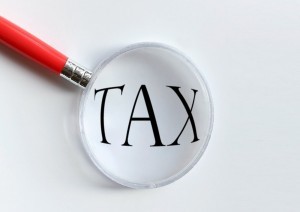Every year, the Chancellor of the Exchequer spells out the vision for the future and while most of the headlines are taken up by announcements on extra taxes for a pint of beer, a glass of wine or a tank of petrol, the announcements go much further than that. Anything and everything from Income Tax, pensions, National Insurance and VAT are spelled out for the coming years – things that actually directly affect the pay-packet of everyone in the country.
Archives for Uncategorised
Employers and Pensions – what are the new rules?
Just about everybody knows that they now need a workplace pension, as well as the one that is currently paid out by the Government at retirement age. It’s been quite a successful campaign for the government, as the big purple monster in the ads has made everybody aware that if they’re employed, then they need to pay into a workplace pension and their employer must too.
Flat Rate VAT – is it worth doing?
If you’ve not read out initial blog on charging Value Added Tax in the UK, it’s probably best to read that first – you can do so here
So, now you’re up to speed on what VAT is supposed to do, how it works and that there are three different rates of VAT. Just to make things nice and complicated, the UK Government decided to shake up the system back in 2002 by introducing Flat Rate VAT.
As we know, the idea of VAT is that a business will charge it to all their customers, but pay it to all their suppliers. If you’ve charged more VAT than you’ve taken, then you pay the difference to HMRC. If you pay more than you take, then you can claim the VAT back. This obviously takes a lot of accounting and administration to add up all the figures and see where the final balance comes out, so the Government introduced Flat Rate VAT to simplify the system.
The idea of the Flat Rate system was that businesses could pay a certain percentage of all the VAT they took to HMRC and keep the rest. Not only did it save time and a lot of work, but it would still bring HMRC about the same amount of money and businesses would like it because they got to keep some of the VAT charged to customers.
The rates for flat rate VAT vary dependent on what type of business you have, but if you have a company that brings in £12,000 per month, £2,000 of that would be VAT charged at 20% – £10,000 + 20% VAT = £12,000. If your flat rate VAT was 10%, then you’d only have to hand over £1,200 of your VAT take each month to The Taxman, meaning businesses got a cash boost of around £9,600 per year without the Government losing out.
All this changed, however, last November. The system was updated, as many small businesses run as service providers, meaning that large amounts of their business is digital and they don’t have to buy raw materials. This means that businesses like design agencies or IT consultancies have limited costs, as they do a lot of their business online or digitally. The government changed the rules so that “limited cost traders” that don’t have to spend a lot on raw materials and therefore don’t pay a lot of VAT wouldn’t be in a position to keep significant amounts of VAT money, as listed in the example above.
The new rules that were brought in earlier in the year mean that limited cost traders now have a flat rate of 16.5% to pay. If we look at the example earlier, a company that takes £12,000 a month including VAT would now have to hand £1,980 of their monthly VAT take over to HMRC, meaning the company would benefit by £240 per year as opposed to £9,600.
Many small businesses that are classed as limited cost traders are concerned as they still have to pay VAT to other businesses, such as IT firms, marketing agencies, accountants and consultants, as these service providers don’t count towards the VAT offset. If you’re required to pay VAT, then you need to look at the amount you spend to other businesses each month and how much you bring in as VAT to see if it’s worth working under the Flat Rate Scheme or if you could limit the amount that you have to pay to HMRC by going back to the more complicated, two stage system.

What’s Corporation Tax and Why Is It Such A Big Deal?
Corporation Tax – or Corp Tax – is one of those things that makes the headlines every so often and it’s now back in the news! A few years ago, reports came out that international companies such as Google, Facebook and Starbucks weren’t paying enough UK Corp Tax. A few years after that, Corp Tax was reduced, but there’s a lot of discussion in the run up to the election whether it should be raised to provide future Government spending money.
That doesn’t really answer the question; what exactly is Corporation Tax?
Put simply, the Government takes a percentage of all companies’ profits. Once a company has paid their salaries, rent, suppliers and everything else, what’s left over is profit and (currently) companies give 19% of it to HMRC at the end of the year.
The news on big companies not paying UK Corp Tax was because money that was made in the UK was legally moved to other European headquarters, where Corporation Tax was lower. Many felt that money made in the UK should be taxed in the UK and after the headlines, many companies started paying more UK Corp Tax.
So how does it affect small business owners?
Many small businesses run as Limited Companies, which only employ one or two people. If you are the only employee of your limited company, then it can make a difference to how much tax you pay, and whether it’s Corp Tax or personal Income Tax.
Imagine your one-person limited company took £20,000 last year. If you have no other expenses and pay yourself all £20,000 in salary, there’d be no profits, so wouldn’t need to pay Corp Tax. You would however, need to pay personal Income Tax. You can pay yourself less so your company has profits, but then you’d need to pay Corp Tax. The difference is that Income Tax is 20%, but currently Corp Tax is only 19%, so for a one-person limited company, it’s possible to save some money by paying Corp Tax over Income Tax. Obviously if you have more expenses, you pay less Corp Tax – so every salary and supplier you have to pay reduces the amount of profit you have.
Once the Corp Tax is paid, then the profits left can be paid to the company directors as dividends – and everyone has a personal allowance for director dividends that they can receive tax-free!
Corporation Tax is meant to be the fairest way of collecting taxes on companies as it only affects their profits – so the more they make, they more they can afford to pay. For small one or two-person businesses, the idea of paying more Corp Tax can be worrying as profits tend to be much smaller and margins tighter. Paying more in Corp Tax reduces the amount left over in post-tax profits that can be paid to the company directors in dividends, which can leave some directors earning less. If the suggested Corporation Tax rate rises to 26%, then company directors may find it more cost effective to pay their directors more in salary.
What may be comforting to know is that the current rate of 19% is the lowest flat rate the UK has ever had; when Corporation Tax was introduced it was 40% – and has been as high as 52%! Whether it goes up or down, there are no plans to put it back to as high as it was back in the old days!
Budget 2016
What does the Budget mean for you
Individuals/Self Employed
- Tax Free Personal Allowance increase to £11,500 from April 2017
- Higher Rate Tax Allowance to increase from £42,385 to £45,000 from April 2017
- Capital Gains Tax for basic rate taxpayers reduced from 18% to 10% from April 2016 (excludes property disposals)
- Capital Gains Tax for higher rate taxpayers reduced from 28% to 20% from April 2016 (excludes property disposals)
- Insurance costs will increase by 0.5%
- Introduction of a Lifetime Isa for the Under 40’s, which will offer a £1 bonus for every £4 invested (max £4k per annum investment)
- Redundancy/Termination Payments greater than £30k will now attract NI as well as Tax from April 2018.
- Annual Isa limit increase to £20k from 2020
- Class 2 National Insurance for Self Employed to be abolished from April 2018
Companies/Business
- Reduction in Corporation Tax to 17% from April 2020
- Small Business Rate Relief increase from £6k to £15k rateable values
- Higher Rate Threshold for business rates increased from £18k to £51k
- Loans to Participators (Directors) will attract a tax rate of 32.5% up from 25%
National Living Wage
The National Living Wage for employees over the age of 25, comes info effect on the 1st April 2016. This is an increase from £6.70 to £7.20 per hour for relevant employees – is your business prepared for this …..
Auto Enrolment – Are you ready
Are you an employer and not yet set up your company pension scheme?
It will soon be here that all employers have one in place, and all employees between the age of 22 and State Pension Age and earn over £833 a month HAVE to be enroled – They can opt out after however they must all be opted in initially. Even if employees don’t fall within these criteria they can ask to opt in. You should have received notifications from the Pension Regulator with your Staging date around 12 months prior to your staging date and around six months before your staging date is when you should be looking at choosing a scheme. If you want more information on this and how it affects your business, please contact us.
New Website
Nearly 3 years since I initially set up the business and finally got round to getting a decent website created. Lots more features than before with news updates, and soon to come in the future a client log in area … keep looking for more updates


